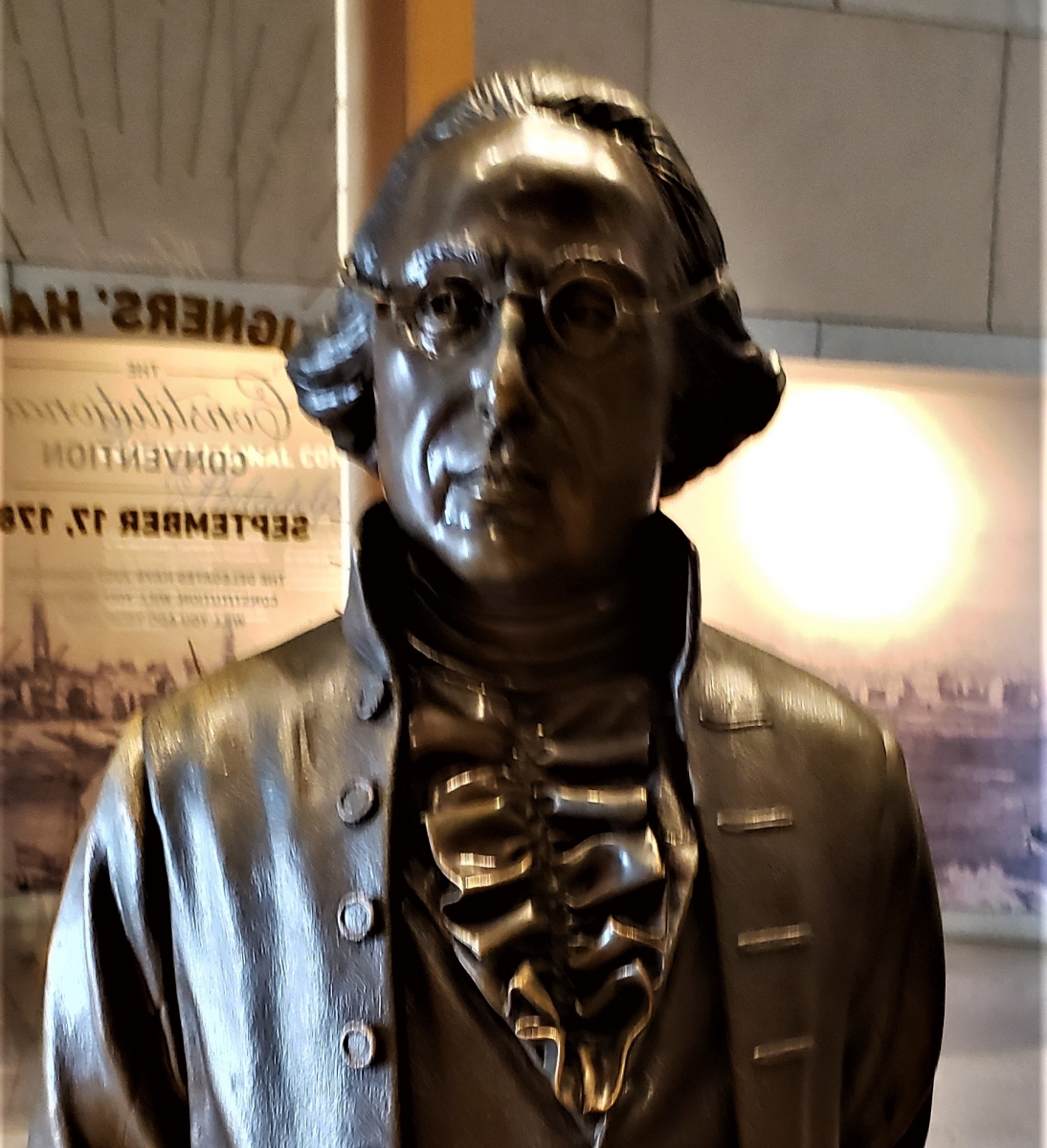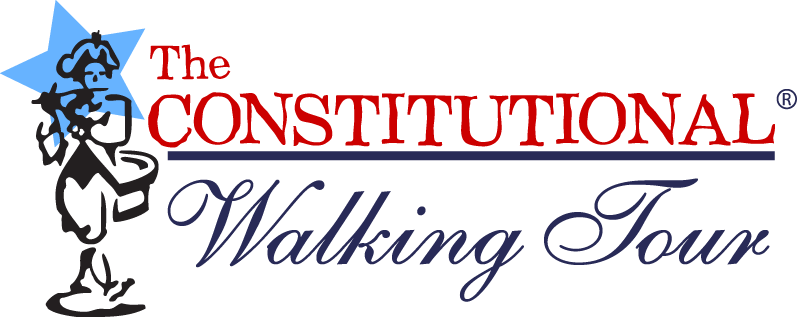Related Posts
- Buy Tickets for The Constitutional Walking Tour of Philadelphia – See 20+ Sites on a Primary Overview of Independence Park, including the Liberty Bell and Independence Hall
- First Continental Congress
- Second Continental Congress
- Constitutional Convention
- University of Pennsylvania
- Independence Hall
- Signers' Garden
- Signers' Walk
- Old City Hall
- National Constitution Center
Birth: September 14, 1742
Death: August 21, 1798 (Age 55)
Colony: Pennsylvania
Occupation: Lawyer
Significance: Signed The Declaration of Independence (at the age of 33), Signed the United States Constitution (at the age of 45), named an associate Justice of the Supreme Court (at the age of 46); One of only six people to sign both The Declaration of Independence and the United States Constitution

James Wilson was one of the Founding Fathers of the United States. Wilson was one of only eight immigrants to sign The Declaration of Independence. Originally born in Carskerdo Farm, Fife, Scotland, Wilson would eventually move to Philadelphia after attending University in Scotland. After moving to Philadelphia, Wilson began teaching at the Philadelphia Academy (which would eventually become the University of Pennsylvania, also known as Penn today, and which is part of the prestigious Ivy League). While at Penn, Wilson became the institution's first Professor of Law.
While in Philadelphia, Wilson would also begin studying law under fellow Founding Father John Dickinson, and he would subsequently pass the Bar exam. While practicing law in Reading, Pa. Wilson authored an influential pamphlet which argued against the legality of Britain's attempts the tax the colonists without granting them representation within Parliament. Wilson's status within the revolutionary movement subsequently grew and he was eventually appointed to the Second Continental Congress where he signed The Declaration of Independence. Although a strong supporter of Independence, Wilson was known for being even keeled and an admirer of the rule of law. When the Pennsylvania government attempted to seize the property of Philadelphia loyalists and convict them of treason for supporting the British, Wilson defended their rights at trial and won. His actions led to an attack on his home at Third and Walnut streets in Philadelphia by an angry mob of patriots. The city's calvary had to be called in to intervene and save Wilson and his house guests. Six died in the fighting and many more were injured but Wilson continued to stand by his principles.
He would later also be named a member of the Constitutional Convention which met in Philadelphia during the summer of 1787. Wilson was a key figure in the creation of the United States Constitution. Known as the "Principal Architect of the Executive Branch," Wilson was the leading proponent of placing the power of the executive branch in the hands of one President, rather than a committee or some other assembly. While many were wary of investing so much trust in one person immediately after overthrowing a monarchy, Wilson insisted that it was necessary for a single person to head the executive branch in order to act decisively in times of emergency and so that the people knew who to hold accountable for the actions of the executive branch. Wilson won over his fellow delegates and is the main author of Section II of the United States Constitution which deals with the Executive Branch. Wilson also served on the Commitee of Detail which wrote the first draft of the United States Constitution. Wilson signed the Constitution on September 17th, 1787. He is one of only six founders who signed both The Declaration of Independence and the Constitution of the United States.
After the ratification of the United States Constitution, Wilson was one of the most vocal supporters of the new Constitution in the fight to ratify the document. His "Speech in the Statehouse Yard" which was delivered shortly after the close of the Constitutional Convention in the square behind Independence Hall was widely reprinted in newspapers and pamphlets throughout the country and was instrumental in garnering support for the new Constitution.
In 1790 Wilson participated in the 1790 Pennsylvania Constitutional Convention and is considered the primary author of Pennsylvania's Constitution which was used for roughly half a century before being significantly changed in 1838.
George Washington named Wilson one of the first five Associate Justices of the Supreme Court, which met at Old City Hall.
James Wilson in Philadelphia
James Wilson first lived in Philadelphia as a young man when he taught at the University of Pennsylvania. Then known as the Philadelphia Academy, the school was located at the corner of 4th and Arch Streets at the time. Today a plaque commemorates the original location of the University of Pennsylvania on the side of the Wyndham Hotel that is currently located there. Wilson would later live in Philadelphia while a member of the Continental Congress, during this time Wilson would work at Independence Hall, and he would eventually sign The Declaration of Independence. A plaque commemorating Wilson for signing The Declaration of Independence can also be found on Signer's Walk on the 600 block of Chestnut Street.
Wilson worked again at Independence Hall when he helped to write the United States Constitution. Wilson also worked in Old City Hall as an Associate Justice of the Supreme Court while Philadelphia was the Capital of the United States. Today, you can also see a statue of Wilson inside of the National Constituion Center in their Signer's Hall exhibit. The National Constituition Center, Independence Hall, Signer's Walk, Old City Hall, and the plaque commemorating the original site of the University of Pennsylvania are all visited on The Constitutional Walking Tour!



